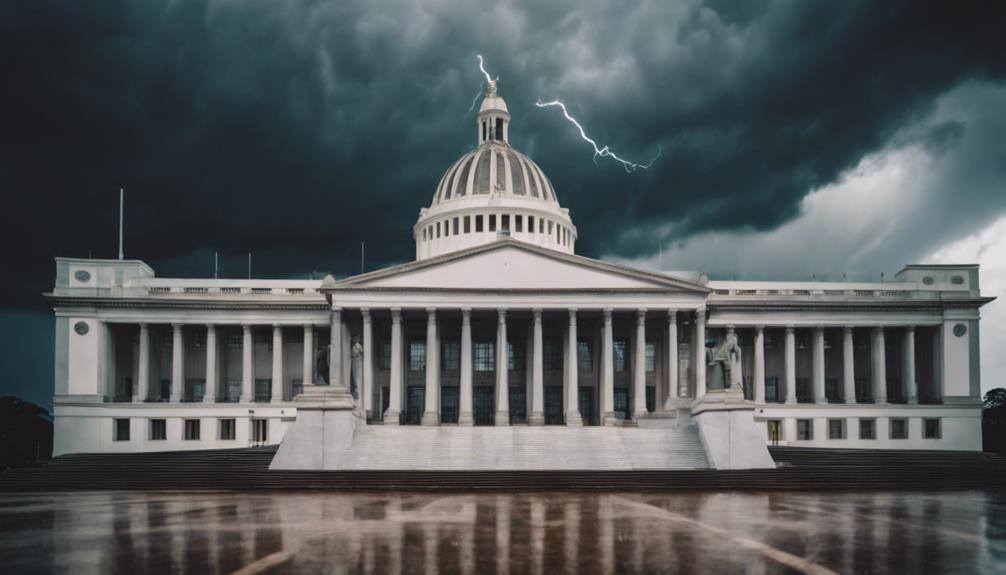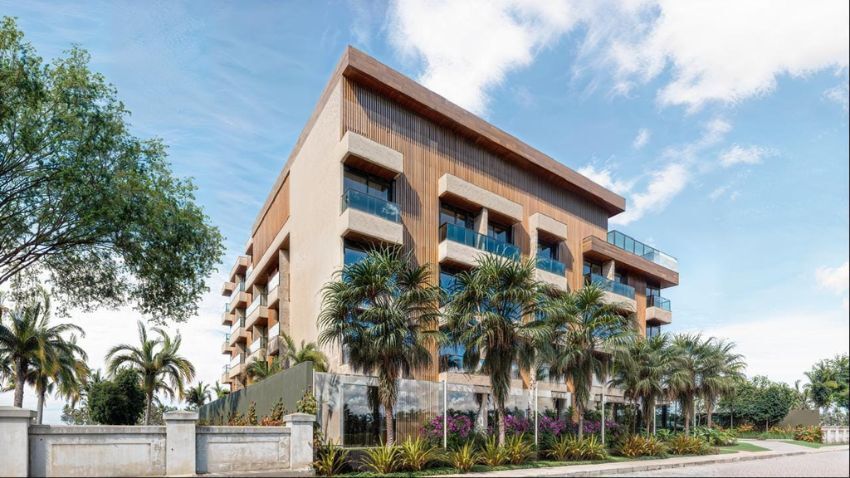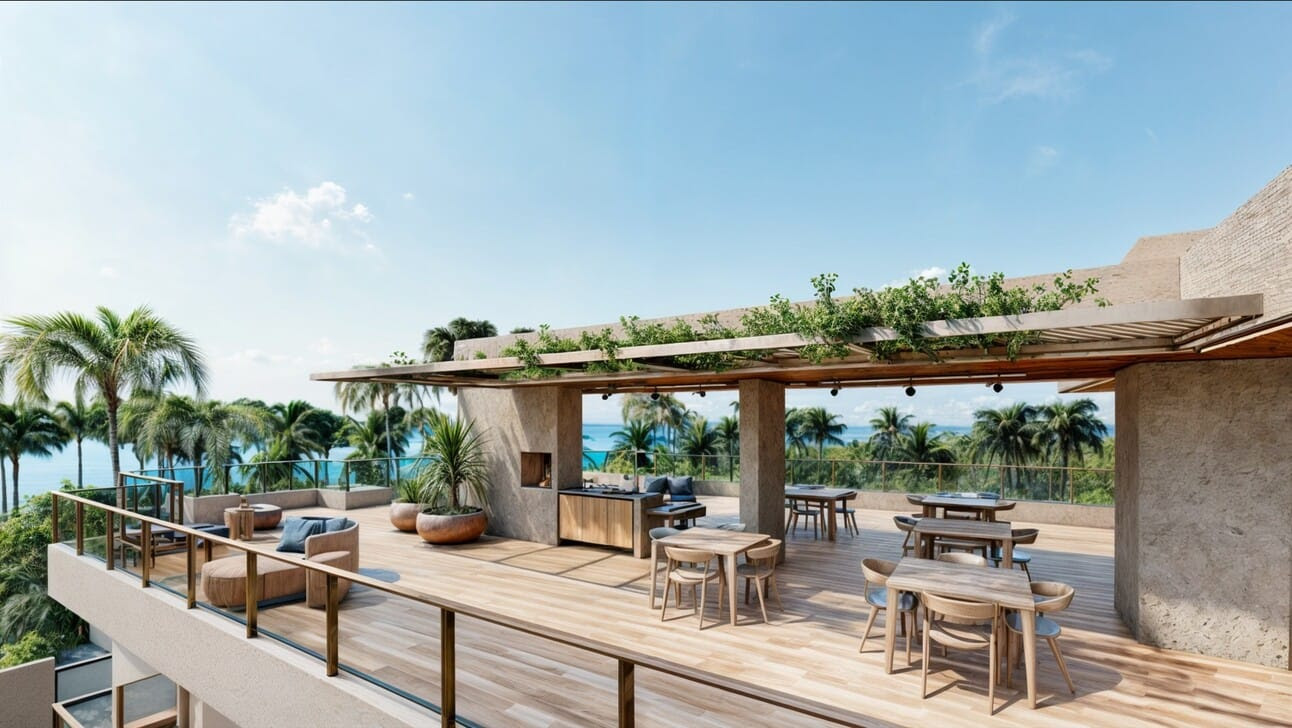Why I Own Real Estate in Multiple Countries...
Over the years, I’ve built a portfolio of real estate across numerous countries - not just as investments but as strategic tools to ensure freedom,...

As you consider expanding your investment portfolio into Brazil's market, you're likely aware of the potential high rewards. However, it's essential to also focus on the significant risks associated with foreign direct investment in the region. Political instability, economic volatility, and stringent regulatory environments are just the tip of the iceberg. For instance, how might Brazil's fluctuating currency impact your returns, or how could local social unrest affect market stability? These are questions that necessitate a deeper look into the intricacies of Brazil's investment climate, ensuring you're well-prepared before making any financial commitments. What strategies might you consider to mitigate these risks?
Political instability and frequent leadership changes increase the risk of policy shifts affecting FDI.
Brazil's high public debt, projected to reach 92.4% of GDP by 2025, deters investment.
Complex and frequently changing tax regulations complicate compliance and increase operational costs.
Infrastructure deficiencies can significantly disrupt business operations and logistics.
Social unrest, including frequent protests and strikes, poses operational risks and can lead to investor retreat.

Political instability in Brazil often creates uncertainties that can deter your FDI investment decisions. The nation's history of political conflicts and leadership changes introduces significant risks that might cause you to rethink your strategies. When you're planning to invest, it's essential to take into account how the frequent shifts in government policies and the potential for regulatory upheavals could affect your operations and profitability.
Moreover, the possibility of new leadership can lead to shifts in priorities and policies. Such changes mightn't always align with your business objectives, adding another layer of risk to your investment calculations. As you navigate this complex landscape, understanding these factors is key to making informed decisions and safeguarding your investments against the unpredictable nature of Brazil's political climate.
The recent shift towards expansionary economic policies in Brazil has raised concerns about the nation's fiscal sustainability and its effects on your investment plans. As the government prioritizes growth, these policies are projected to expand public debt significantly. By 2025, public debt is expected to reach 92.4% of GDP. This rising debt level could jeopardize Brazil's macroeconomic stability, which is essential for maintaining investor confidence and attracting foreign direct investment.
You'll need to keep a close eye on these developments. Monitoring these shifts is important for understanding the evolving landscape and evaluating the potential risks to your investments in Brazil. As the situation unfolds, reevaluating your strategies will be key to handling the uncertainties presented by Brazil's economic policy shifts.

Beyond economic policy concerns, you'll also need to navigate Brazil's complex regulatory and legal environment to protect your investments. As a foreign investor, the challenges you face aren't just about understanding the market but also grappling with the country's intricate legal requirements and regulatory hurdles. These issues can greatly impact the cost and feasibility of doing business in Brazil.
To thrive, you'll need to stay adaptable and informed, often requiring investments in local legal expertise to guarantee full compliance with tax and licensing requirements. This strategic approach will help mitigate risks associated with Brazil's dynamic economic landscape.
As an investor, you'll face significant challenges due to the depreciation of Brazil's real and rising inflation concerns. The depreciation of the real impacts your FDI investments directly, making it harder to predict returns and manage financial planning. The fluctuating exchange rate adds another layer of complexity, often eroding the value of the capital you've invested.
Inflation concerns in Brazil compound these issues, introducing uncertainties that can deter you and other foreign investors from making long-term commitments. The high inflation rates not only affect purchasing power but also impact overall economic stability, which is vital for the sustainability of your investments. These dynamics force you to contemplate inflation as a key risk factor when evaluating potential returns.
To navigate these challenges, it's crucial to develop proactive risk management strategies. Understanding the trajectory of Brazil's currency and anticipating possible inflation scenarios will allow you to mitigate potential losses. This approach requires staying informed about Brazil's economic policies and market trends that could influence the real and the inflation rate. By doing so, you make certain that your investments aren't only protected but also positioned to capitalize on any potential economic recovery or stabilization in Brazil.

Social unrest in Brazil has greatly disturbed the investment landscape, impacting your business operations and shaking investor confidence. The frequent protests, strikes, and demonstrations, especially in 2022, highlight the country's ongoing economic challenges and political instability. This environment can make you question the stability and predictability needed for long-term investments.
These elements collectively sour the investment climate, making Brazil a challenging arena for your business endeavors. Addressing these social issues is vital, not only to pacify the immediate unrest but also to lay a foundation for a stable and favorable investment environment. Without tackling these root causes, the cycle of disruptions is likely to persist, undermining the potential for economic prosperity and growth.
While addressing social unrest is vital, you must also navigate the heightened trade tensions between Brazil and the US, particularly concerning agricultural subsidies and intellectual property rights. The root of Brazil-US trade tensions often lies in Brazil's restrictive trade policies and protectionist measures, which have strained relationships with key trading partners like the US. You're facing tariff disputes and non-tariff barriers that hinder smooth trade relations, making it tough to maintain a stable and beneficial trade environment.
The US has frequently raised concerns about Brazil's compliance with trade agreements, particularly pointing out how these issues impact fair competition. These disputes over agricultural subsidies complicate matters further, as both nations have significant stakes in the agriculture sector. Intellectual property rights are another critical area of contention, where the US demands stricter enforcement and protection to safeguard its innovations.
It's essential for you to work towards resolving these disputes and enhancing cooperation. Only through diplomatic engagement and possibly revising some of the trade policies can you mitigate these tensions. Remember, a resolution is vital not just for trade but for maintaining overall relations with a key international partner like the US.

You'll often find that Brazil's complex tax system presents significant compliance challenges for foreign investors. The Brazilian tax landscape is fraught with high taxes and a multi-layered approach that can greatly increase the cost of doing business. Maneuvering through these waters requires a keen understanding of the local taxation issues, which, if not managed properly, could lead to hefty fines and penalties.
To paint a clearer picture, imagine dealing with:
A constantly changing set of tax laws that require frequent updates and adjustments to your business operations.
Multiple layers of taxation at federal, state, and municipal levels, each with its own rules and rates.
A lack of clarity in tax filing procedures, making it challenging to make sure you're fully compliant.
Staying on top of these regulatory updates isn't just advisable; it's essential. Any slack can land your business in hot water, complicating your investment and operational strategies. While there's talk of tax reform to streamline some of these issues, as of now, the reality is a complex web of compliance difficulties that demand your attention and resources. So, you'll need to be proactive and vigilant to maneuver Brazil's taxing environment successfully.
As you consider investing in Brazil, it's essential to stay alert to the myriad risks. From political shifts and economic uncertainty to complex regulatory frameworks and volatile currency values, you'll face challenges.
Additionally, social unrest, strained trade relations, and intricate tax systems can impact your investment. By leveraging local expertise and continuously monitoring these factors, you can navigate these hurdles more effectively and safeguard your investments in Brazil's dynamic market.


Brazil Beachfront is your trusted source for uncovering the incredible opportunities along Brazil’s breathtaking Northeastern coastline. With Brazil’s economy on the rise and its middle class growing rapidly, the market offers an undeniable upside for offshore investors.
The newsletter also showcases past projects, providing readers who have purchased real estate with detailed construction updates to keep them informed every step of the way. From the lifestyle appeal of Brazil’s pristine beaches to the financial advantages of investing in this high-growth market, Brazil Beachfront delivers the insights and updates needed to capitalize on one of the world’s most dynamic real estate opportunities.

Over the years, I’ve built a portfolio of real estate across numerous countries - not just as investments but as strategic tools to ensure freedom,...

Every week, I bring you deals, insights, opportunities and off-market projects that nobody else has access to……and many of you assume it’s because I...

If you were to visit Porto das Dunas today, you would feel something that is hard to capture in photos……it feels organized.Traffic flows smoothly....